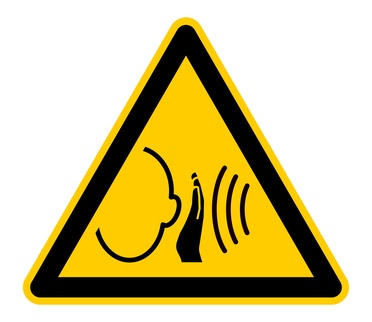Feel like you have a constant ringing in your ears? Maybe it sounds like a low hum or a high-pitched squeal. Don’t worry, you’re not hearing things. These are the tell-tale signs of tinnitus.
 What is tinnitus?
What is tinnitus?
Interestingly, tinnitus itself isn’t an actual condition. It’s simply a side effect of an underlying issue, like ear injury, circulatory system disorder or more commonly, age-related hearing loss. This causes “phantom noises” which can include ringing, buzzing, roaring, clicking and hissing.
It affects around one in five people and comes in varying degrees of seriousness. For some people its somewhat bothersome, while for others its downright debilitating. The good news is that there are treatments out there. And you’re definitely not alone. In fact, the legendary Eric Clapton is the latest celebrity to speak up about tinnitus and what it means for his lifestyle.
He may have dedicated his entire life to music, but that hasn’t stopped Clapton from running into age-related hearing loss in his 70s. Like so many others in his age demographic, Clapton must now make decisions on how to manage tinnitus and move forward with his life. He’s sounding pretty darn positive, insisting that it won’t stop him from entertaining his fans and creating meaningful music. Sting is another celebrity that’s openly admitted to suffering from tinnitus, and has taken a bit of a tongue in cheek approach to his condition.
“I tried wearing a hearing aid, but I heard more than I wanted to hear! People talk a lot of s–t. … I’m fairly deaf and ‘what?’ is my favourite word,” he said in an interview with SiriusXM.
Deciphering “phantom noises”
In most cases “phantom noises” are diagnosed as subjective tinnitus. This is caused by issues in the outer, middle or inner ear, as well as problems with the hearing nerves or the brain’s auditory pathways. While there are plenty of other causes, age-related hearing loss is the most common trigger. Medically it’s known as presbycusis and tends to emerge around the 60s and 70s. The best thing to do is to chat to your doctor about your condition and discuss treatment options. Chances are with a few lifestyle tweaks, the right medication or a specialist noise suppression solution, you could soon rise above the ringing. There’s even new research suggesting that alternative medicines are viable treatments, so why not start researching therapies like acupuncture, hypnosis and ginkgo biloba?
Do you suffer from tinnitus? We’d love to hear about your experiences and management tips so let’s chat!









Join the Discussion
Type out your comment here:
You must be logged in to post a comment.